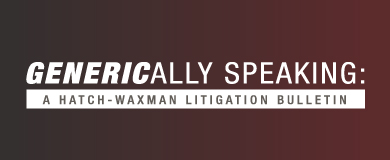- Acumen Powered by Robins Kaplan LLP®
- Affirmative Recovery
- American Indian Law and Policy
- Antitrust and Trade Regulation
- Appellate Advocacy and Guidance
- Business Litigation
- Civil Rights and Police Misconduct
- Class Action Litigation
- Commercial/Project Finance and Real Estate
- Corporate Governance and Special Situations
- Corporate Restructuring and Bankruptcy
- Domestic and International Arbitration
- Health Care Litigation
- Insurance and Catastrophic Loss
- Intellectual Property and Technology Litigation
- Mass Tort Attorneys
- Medical Malpractice Attorneys
- Personal Injury Attorneys
- Telecommunications Litigation and Arbitration
- Wealth Planning, Administration, and Disputes
Acumen Powered by Robins Kaplan LLP®
Ediscovery, Applied Science and Economics, and Litigation Support Solutions
-
June 1, 2022Chambers USA Recognizes Five Robins Kaplan Practice Groups And 17 Lawyers In 2022 Guide
-
June 1, 2022Seasoned Attorney Joins Firm’s Business Litigation Group
-
May 26, 2022Shira Shapiro Named Woman of Promise By The Pearl Society
-
June 3, 202219th Annual Advanced Insurance Law
-
June 9, 2022Building Your Brand: Perspectives and Insights from a Diverse Bar
-
June 10, 2022LGBTQ Legal Services: Transgender Name Change Clinic
-
May 24, 2022Briefly: Seeking Fees and Costs While on Appeal
-
May 19, 202211th Circ. Ban On Service Awards May Inhibit Class Actions
-
May 13, 2022Trademark Applications and the Murky Waters of Subject Matter Jurisdiction
-
June 2, 2022Sandberg Stepping Down as Meta COO After 14 Years
-
June 1, 2022Markets Revert to Recent Form as Pessimism Takes Hold
-
May 27, 2022Unexpectedly Strong Retail Sales Pull Markets Back from the Brink
Find additional firm contact information for press inquiries.
Find resources to help navigate legal and business complexities.
Horizon Meds. LLC v. Dr. Reddy’s Labs., Inc.
Relying on a Federal Circuit decision that invalidated for lacking an adequate written description a patent from which the patents-in-suit descend, the court denied plaintiff’s motion for a preliminary injunction for failing to show a likelihood of success on the merits.
October 18, 2019

Case Name: Horizon Meds. LLC v. Dr. Reddy’s Labs., Inc., Civil Action No. 15-3324 (SRC), 2019 U.S. Dist. LEXIS 218330 (D.N.J. Dec. 18, 2019) (Chesler, J)
Drug Product and Patent(s)-in-Suit: Vimovo® (naproxen/esomeprazole magnesium); U.S. Patents Nos. 8,858,996 (“the ’996 patent”) and 9,161,920 (“the ’920 patent”)
Nature of the Case and Issue(s) Presented to District Court: Vimovo is an oral drug formulation used to treat symptoms of osteoarthritis, rheumatoid arthritis, juvenile idiopathic arthritis, and ankylosing spondylitis. The patents-in-suit all cover a method to achieve pain-and-symptom relief with a reduced risk of developing gastrointestinal damage such as ulcers, erosions, and hemorrhages. Plaintiffs sought a preliminary injunction to prevent Dr. Reddy’s from launching its ANDA product. The court denied the motion for a preliminary injunction, as plaintiffs failed to show a likelihood of success on the merits against Dr. Reddy’s challenges to the patents-in-suit’s validity and enforceability.
Why Dr. Reddy’s Prevailed: In its opposition, Dr. Reddy’s challenged the validity of the patents-in-suit, arguing that the asserted claims lacked adequate written description. Dr. Reddy based this argument on Nuvo Pharms. (Ir.) Designated Activity Co. v. Dr. Reddy's Labs. Inc., 923 F.3d 1368, 1371 (Fed. Cir. 2019), in which the Federal Circuit invalidated U.S. Patent No. 6,926,907, which shares a parent application with the patents-in-suit. Specifically, Dr. Reddy’s contended that, as in Nuvo, the court should construe the asserted claims to require effective uncoated esomeprazole, and as construed, the asserted claims fail to meet the written-description requirement. Plaintiffs contended that the all claim language should have its ordinary meaning.
The court noted that, as to the likelihood of success on the merits, the dispute turned on the question of how the asserted claims should be construed in the preliminary-injunction context, and that the court need not reach a conclusive resolution of the issue. The Federal Circuit has called this a “rolling claim construction.” Because Dr. Reddy’s raised a substantial question of patent invalidity at the preliminary-injunction stage, which the Plaintiffs did not show lacked substantial merit, the court denied plaintiffs motion for injunctive relief. Relying on Nuvo, the court noted, “it is a common-sense proposition that, if [Plaintiffs] were unable to persuade the Federal Circuit that the shared specification—shared with the ’996 and ’920 patents, the parties agreed—provides adequate written description support for a claim limitation of effective uncoated PPI, they are unlikely to succeed in defeating the same validity challenge in this case.”
Related Professionals
Related Publications
Related News
If you are interested in having us represent you, you should call us so we can determine whether the matter is one for which we are willing or able to accept professional responsibility. We will not make this determination by e-mail communication. The telephone numbers and addresses for our offices are listed on this page. We reserve the right to decline any representation. We may be required to decline representation if it would create a conflict of interest with our other clients.
By accepting these terms, you are confirming that you have read and understood this important notice.
